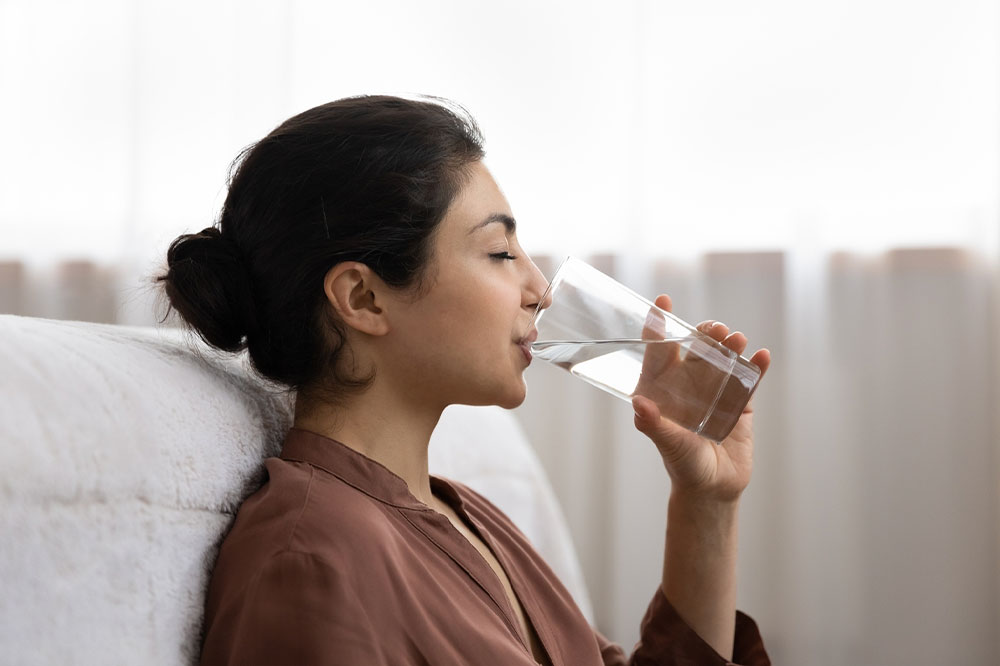
Managing heat exhaustion – Symptoms, causes, and prevention
Heat exhaustion is a condition wherein the body overheats, causing symptoms like rapid pulse and heavy sweating. This heat-related illness develops after one is exposed to high temperatures. One can experience dehydration along with heat exhaustion and could be affected by either type: salt depletion or water depletion. Although not as severe as a heat stroke, without proper intervention, heat exhaustion may turn into a heat stroke and cause health issues.
Symptoms
Symptoms of heat exhaustion can develop suddenly or gradually. First, one can experience heat cramps or a red rash. These painful cramps affect any muscle but typically develop in the legs or arms. Some prevalent heat exhaustion symptoms are:
- Low blood pressure and weak yet fast heartbeat when one tries to stand up
- Nausea and vomiting
- Fainting spells, weakness, or fatigue
- Shallow or rapid breaths
- Swelling in the hands and feet or swollen ankles
- Excessive or severe sweating and clammy, cold skin
- Fever, typically more than 100 degrees Fahrenheit
- Lightheadedness, dizziness, headache, and blurred vision
Causes
The body heat, along with environmental heat, determines the core temperature, i.e., the inner temperature. The body must regulate the heat loss or heat gain depending on the weather to maintain the typical core temperature of 98.6 degrees F. During summer, the body cools itself by sweating, and sweat evaporation regulates this temperature. But with overexertion or exercising in hot and humid weather, the body cannot cool itself. Consequently, one may experience heat cramps, with other symptoms like thirst, fatigue, and heavy sweating. Proper treatment can help prevent the cramps from advancing to complete heat exhaustion.
In addition to engaging in intense physical activities in hot weather, causes of heat exhaustion causes are:
Overdressing : Putting on clothes or additional layers of clothing, not letting the sweat evaporate easily
Dehydration: This hampers the body’s ability to sweat and maintain a normal temperature.
Risk factors
Although anyone can experience heat exhaustion, the following factors make one more susceptible:
- Age: Younger children and infants or adults over 65 are more susceptible to heat exhaustion, as their bodies may not be regulate the temperature
- Certain prescription options: Some treatment options can also hamper the body’s ability to respond to heat and stay hydrated. These include certain prescriptions for mental disorders, heart problems and high blood pressure, and allergy symptoms.
- High heat index: This is a temperature value to assess how humidity and outdoor temperature make one feel. On days with high humidity, the sweat does not evaporate easily. So, it is challenging for the body to cool itself. Consequently, one is more like to experience a heatstroke or heat exhaustion . So, whenever the heat index is 91 F or more, one must try to keep the body cool.
- Sudden temperature changes: Those not used to heat are more likely to suffer from heat exhaustion. The body requires time to adapt to higher temperatures. So, when traveling to a warm region from a cold one, one can develop heat exhaustion as the body does not get the chance to adapt to extreme temperatures.
Treatment
First, when dealing with heat exhaustion, one must instantly stop exercising and have some fluids. Management options include:
- Taking a cold or lukewarm shower
- Loosening the clothing
- Moving to a cool spot
- Lying flat on the back
- Placing a wet, cool cloth on the chest and face
- Putting ice packs under the armpit and behind the neck
- Having drinks containing electrolytes
Prevention
- When working out, one should stay hydrated by taking a few sips of a sports drink or water every 30 minutes.
- One can avoid overheating when exercising in hot weather by wearing breathable, loose clothing. Further, taking frequent breaks in a cool, shaded spot and wearing a hat with a brim can protect them from the sun.
- The temperature can rise quickly inside the car. So, one should not let the pets or kids wait or play in a parked car.
- Some prescriptions can cause dehydration, so one should consult a doctor to find alternatives or solutions if experiencing extremely hot weather.
- On hot days, it is best to exercise late in the day or early in the morning when the temperature dips.




